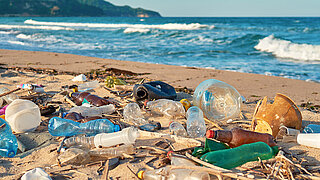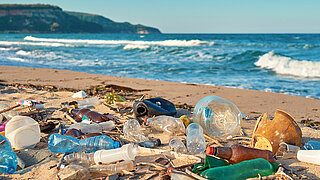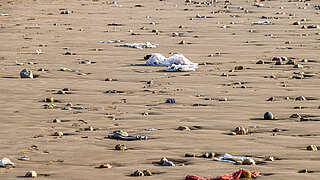About the funding programme
Marine litter is one of the world's greatest environmental challenges. Plastic waste in particular causes considerable environmental damage. The programme supports projects that actively contribute to preventing the discharge of waste into the oceans.
The oceans are the planet’s largest ecosystems and provide a habitat for a vast number of species. They also provide an important source of food and income for many people. However, these important ecosystems are increasingly under threat by pollution. Every year, around 13 million metric tonnes of plastic waste are washed into the oceans. Marine animals can mistake this waste for food or become trapped in it, often with lethal consequences. Plastic consumed by marine animals can also enter the human food chain. Estimations say that by 2040, the annual plastic input into the oceans will more than double. The main raw materials used in plastic production are of fossil origin and account for a large share of their total consumption.
For sustainable prevention of marine litter
The German Federal Ministry for the Environment, Nature Conservation, Nuclear Safety and Consumer Protection (BMUV) supports the government’s engagement against marine litter with its Grant Programme ‘Marine Debris Framework – Regional hubs around the globe’ (Marine DeFRAG). The Grant Programme’s main goal is to prevent plastic waste at the source. For a long-term, sustainable prevention of marine litter, approaches that reduce the generation of plastic waste are particularly important. The Grant Programme against Marine Litter funds projects that develop waste management and circular economy systems, strengthen political and institutional capacities, and initiate social transformation.
Policy brief on extended producer responsibility

Extended Producer Responsibility (EPR) is a systemic approach that can reduce ocean plastic pollution. We present the principles that are important for the design in our second policy brief. To download.
Policy brief on the impact of marine litter on climate change
The UN Climate Change Conference COP 28 placed a focus on the role of the sea in mitigating climate change. Learn more about the impact of marine debris on climate change in our first policy brief. To download. To download.
Copyright: ZUG



